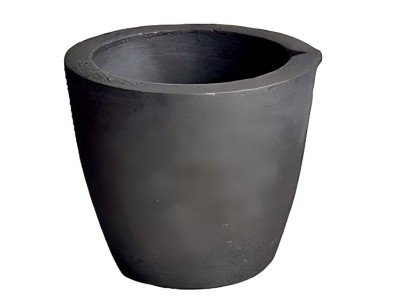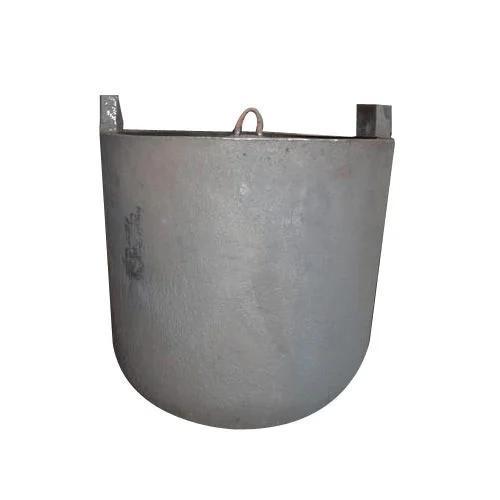Crucible Materials include graphite, ceramic, silicon carbide and steel and cast iron. Crucibles play a vital role in various industrial and laboratory processes, particularly in melting and heating materials at high temperatures.
Common Crucible Materials
The material used to make a crucible significantly impacts its performance, durability, and suitability for specific applications. Manufacturers carefully select materials based on the intended use, ensuring the crucible can withstand extreme conditions without compromising its integrity.
Graphite of Crucible Materials

Graphite is one of the most popular materials for crucibles due to its excellent thermal conductivity and resistance to high temperatures.
Manufacturers often use graphite crucibles in metal melting processes, such as for gold, silver, and aluminum. Its ability to withstand rapid temperature changes makes it a reliable choice for both industrial and laboratory settings.
Ceramic of Crucible Materials
Ceramic crucibles are known for their exceptional resistance to chemical corrosion and high thermal stability.
These crucibles are ideal for applications involving corrosive materials or processes requiring extreme heat. Laboratories frequently use ceramic crucibles for analytical purposes, as they do not react with most substances.
Silicon Carbide

They offer a unique combination of strength, thermal shock resistance, and durability.
They are commonly used in foundries and metal casting industries because they can handle intense heat and mechanical stress. Their longevity and efficiency make them a cost-effective option for high-temperature applications.
Porcelain of Crucible Materials
Porcelain crucibles are widely used in laboratory settings for their ability to withstand moderate temperatures and resist chemical reactions.
They are particularly useful for heating small quantities of materials or conducting experiments that require a non-reactive container.
Steel and Cast Iron

For less demanding applications, manufacturers sometimes use steel or cast iron to make crucibles.
These materials are suitable for lower-temperature processes and are often chosen for their affordability and ease of production. However, they are not ideal for high-temperature or corrosive environments.
Factors Influencing Crucible Material Selection
Temperature Resistance
One of the primary factors influencing crucible material selection is temperature resistance. Crucibles must withstand extreme temperatures without degrading or melting.
Materials such as graphite, silicon carbide, and alumina are commonly chosen for their high melting points and thermal stability.
Chemical Compatibility
Chemical compatibility is another crucial consideration. The crucible material must resist chemical reactions with the substances it contains.
Thermal Conductivity
Thermal conductivity significantly impacts the efficiency of heat transfer within the crucible. Materials with high thermal conductivity, such as graphite, ensure uniform heating and faster melting times.
Mechanical Strength
Mechanical strength is vital to withstand physical stresses during use. Crucibles must endure thermal shock, mechanical impact, and abrasion without cracking or breaking. Silicon carbide crucibles are renowned for their exceptional mechanical strength, making them suitable for demanding industrial applications.
Haichen die casting crucibles:
Haichen, a factory specializing in the production of die casting machine crucibles. We also supply cold chamber and hot chamber die casting machines.
Product Features
- Excellent resistance to low-temperature oxidation ensures that the crucible has good thermal conductivity for a long time, while effectively preventing a decrease in strength caused by oxidation.
- Special material design with excellent crack resistance to prevent the occurrence of cracks during use.
- The iron-free material design prevents iron elements from melting into and contaminating the aluminum melt.
Applicable metal melting point
620-920℃



